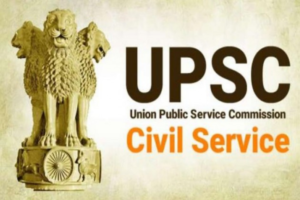The Civil Engineering optional subject syllabus for the UPSC (Union Public Service Commission) exam preparation typically covers a wide range of topics in civil engineering at the undergraduate level. While the syllabus may vary slightly from year to year, the following is a general outline of the topics often included:
- Engineering Mechanics:
- Statics: Equilibrium of particles and rigid bodies, analysis of structures, friction, centroid, and center of gravity.
- Dynamics: Kinematics and kinetics of particles and rigid bodies, impulse and momentum, energy methods.
- Structural Analysis:
- Analysis of determinate and indeterminate structures: Trusses, beams, frames.
- Flexural analysis: Moment distribution method, slope-deflection method, matrix methods.
- Influence lines for determinate and indeterminate structures.
- Matrix methods of structural analysis.
- Design of Structures:
- Steel Structures: Design of steel structures subjected to tension, compression, flexure, and shear. Connections.
- Concrete Structures: Design of reinforced concrete structures, beams, slabs, columns, footings, and retaining walls.
- Masonry Structures: Design of masonry walls, columns, and retaining walls.
- Geotechnical Engineering:
- Soil Mechanics: Origin, classification, properties, and engineering behavior of soils.
- Foundation Engineering: Types of foundations, bearing capacity, settlement analysis, pile foundations, retaining walls.
- Earth Pressure theories, slope stability analysis.
- Fluid Mechanics and Hydraulic Engineering:
- Fluid Properties, fluid statics, kinematics and dynamics of fluid flow.
- Bernoulli’s equation, flow through pipes, open channel flow.
- Hydraulic machines: Turbines, pumps, and their performance characteristics.
- Environmental Engineering:
- Water Supply and Treatment: Sources of water, purification techniques, distribution systems.
- Wastewater Engineering: Collection, conveyance, treatment, and disposal of wastewater. Sewage treatment plants.
- Solid Waste Management: Collection, disposal, and treatment of solid wastes.
- Transportation Engineering:
- Geometric Design of Highways: Alignment, cross-section elements, horizontal and vertical curves.
- Traffic Engineering: Traffic characteristics, traffic surveys, intersection design, traffic control devices.
- Pavement Design: Types of pavements, design criteria, flexible and rigid pavement design.
- Construction Materials and Management:
- Properties and testing of construction materials: Cement, aggregates, concrete, steel, timber, bricks, etc.
- Construction planning and scheduling: Critical Path Method (CPM), Program Evaluation and Review Technique (PERT), resource allocation, project management techniques.
This outline provides a broad overview of the topics typically included in the Civil Engineering optional subject syllabus for UPSC exam preparation. It’s essential to refer to the latest UPSC notifications and syllabus documents for the most accurate and updated information. Additionally, candidates should consult relevant textbooks and study materials to cover these topics comprehensively.





